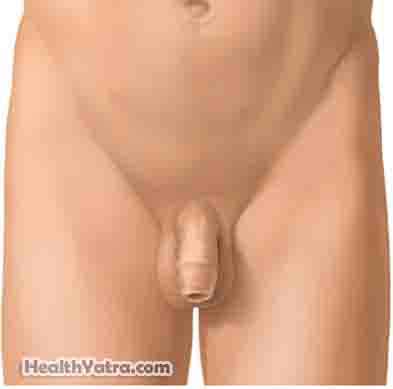Definition
Jock itch is a fungal infection of the skin on the groin and inner area of the thighs. The medical name for jock itch is tinea cruris.
Causes
Common fungus organisms that grow best in warm, moist areas cause jock itch. Fungus can be transmitted from one person to another by:
- Direct contact between people
- Indirect contact (such as sharing towels that are infected with the fungus)
Risk Factors
Hot, humid conditions can increase your risk of jock itch. Other risk factors include:
- Perspiring heavily
- Being obese
- Wearing tight clothing
- Wearing dirty clothing, especially underwear or athletic supporters
- Infrequently changing underwear
- Infrequent showering
- Sharing towels or clothing with other people
- Using public showers or locker rooms
- Having an immune system disorder
Both men and women can be affected. The condition is more common in men, especially those who perspire heavily.
Symptoms
Jock itch causes a chafed, itchy, and sometimes painful rash around the groin and thigh. The area near the anus may also be affected. The rash is:
- Usually red, tan, or brown
- Usually defined clearly at the edges
- Often slightly scaly
Diagnosis
Jock itch can usually be diagnosed based on the appearance and location of the rash. Other skin problems may look similar to jock itch. If you are not certain of the diagnosis, contact your doctor.

The doctor will ask:
- About your symptoms and medical history
- Do a physical exam
In some cases, your doctor may order a lab test of the infected skin area.
Treatment
Over-the-counter antifungal creams can usually treat jock itch. Creams or lotions work better on jock itch than sprays. In severe or persistent cases, your doctor may prescribe stronger creams or oral medicine. Use your prescription for the entire time that your doctor recommends. This will help prevent the rash from returning. If your rash does not go away within a month of treatment, call your doctor.
Creams
Antifungal creams for jock itch include:
- Miconazole
- Clotrimazole (Lotrimin AF)
- Econazole
- Oxiconazole (Oxistat)
- Ketoconazole
- Terbinafine (Lamisil, Lotrimin AT)
- Tolnaftate (Tinactin)
- Ciclopirox (Penlac)
- Haloprogin (Halotex)
- Naftifine (Naftin)
- Butenafine (Lotrimin Ultra)
- Undecylenic acid
All of these medicines can effectively treat jock itch. Some (such as terbinafine, naftifine, butenafine) may work faster, but are often more expensive.
Creams are usually used for 2-4 weeks. Follow the instructions given on the package or by your doctor or pharmacist.
Note: Do not use antifungal creams recommended for athlete’s foot. These may be too harsh for the groin.
Oral Medications
If the rash doesn’t improve with the cream, your doctor may need to prescribe an oral medicine.
Call the doctor if the rash begins to ooze. The rash may be secondarily infected with bacteria. If your doctor confirms this, you may be given an antibiotic.
Lifestyle Changes
These steps can also help to treat jock itch:
- Dry the infected area before dressing.
- Avoid sharing clothing and towels with others.
- Wear loose-fitting clothes that are made out of cotton. Another option is to wear clothes that are designed to wick moisture away from your skin.
Prevention
Take these steps to help prevent jock itch:
- Shower regularly.
- Always shower soon after exercising or perspiring heavily.
- After showering, dry the groin area thoroughly.
- Wear loose-fitting clothing.
- Wear cotton underwear and breathable clothing.
- Avoid wearing clothing that chafes your groin.
- Always wash your clothes (especially underwear, athletic supporters).
- Do not share towels or clothing with others.
- Do not wear wet swimsuits for a long period of time.
- Do not store damp clothing in your locker or gym bag.
